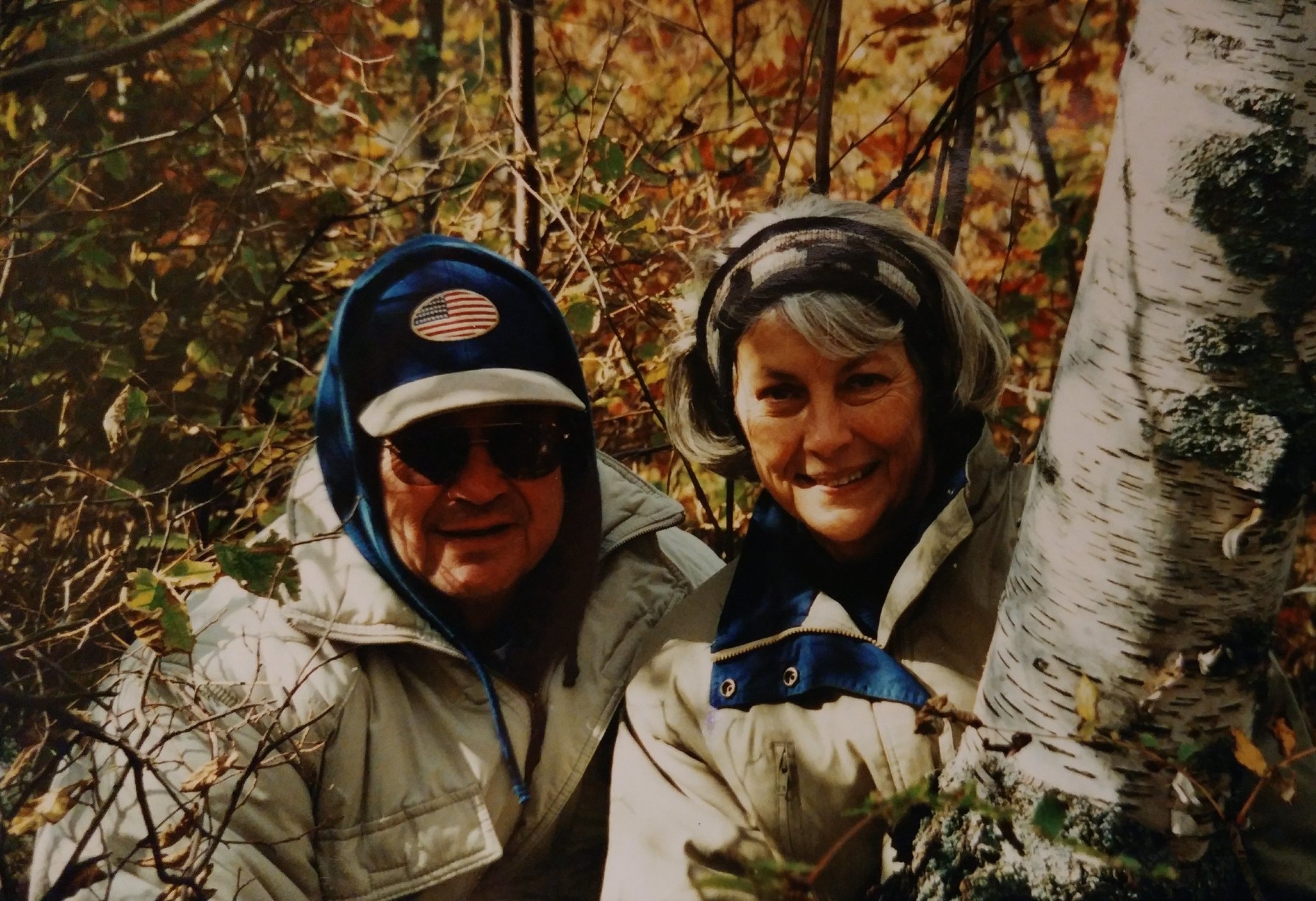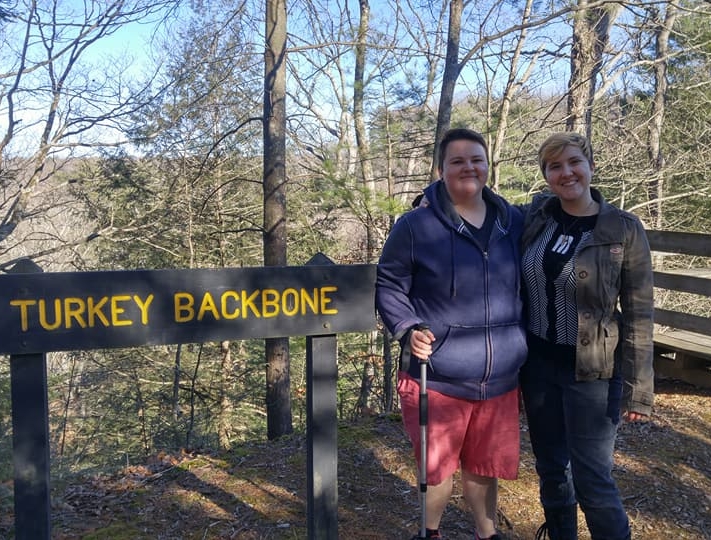As I velcro a tiny coat around my chihuahua-mutt Billie’s torso, she looks deep into my eyes and transmits a message so clear and direct that she may as well have spoken it aloud. “Mother, why?”
Billie on the left, Binx on the right, both bundled in their coats of shame.
“I’m so sorry, sweet angel babies,” I say as I press the leash clasps between my palms to unfreeze them enough to clip to both dogs’ collars. Then I open the storm door and shove them out onto the icy front steps.
Binx - the smaller and shaggier of the chihuahua-mutt sisters - staggers across the lawn first, trying to keep a minimum of paws on the ground as she goes, nearly somersaulting forward as she accidentally tries to elevate both hind legs simultaneously. When she finally pees (directly on the sidewalk and in a quantity rivaling a German shepherd’s capacity), she does so with one trembling back leg lifted skyward, maintaining unblinking and mournful eye contact with me as I watch from the safety of the glass door.
Billie - larger and bizarrely barrel-chested for her breed - stands at the base of the steps, her face almost too human in its expression of sorrow and shame, the canine version of a defeated Charlie Brown. “You're doing this to punish me,” she says with her downcast eyes and her honest-to-god frown. “I just know it. I’m a bad dog, and bad dogs have to wear coats and stand out in the cold.”
I don’t know how to explain to her that it wouldn’t be so bad if she just kept her booties on, or if she used the puppy pads by the door like we’d tried to train both dogs to do during last winter’s icy weather. I don’t know how to tell her that we’ve done all we can in terms of shoveling the walk and using pet-safe salt to melt a path. I certainly don’t know how to convey to her that I’m suffering as well.
OK, maybe I don’t have to relieve myself out there in the tundra with the puppies, but the winter’s running me ragged nonetheless.
Here’s a snapshot of a typical winter morning for me:
Wake up in the dark. I move my legs, dislodging Wednesday the cat, who takes the opportunity to assault my toes and then wander up the bed to give me a kiss directly on the lips or, if I’m especially lucky, my open eyeball.
Fall back asleep while scrolling through Timehop, despite the cat continuing to lick my face and breathe into my mouth.
Frantically re-awaken and rush to start my morning routine, which involves feeding Wednesday, who helpfully races down the hall with me, begging for me to scissor-kick her in half as she weaves between my legs.
Leap into the shower, where I somehow fall asleep a third time halfway through shaving my pits as my podcasts play loudly over a waterproof speaker (even though my wife is still asleep on the other side of the wall).
Leave the shower, but then fall asleep again on the toilet before entering a single number in my morning poop Sudoku puzzle.
Put on clothes in the dark. Hope they match, but it doesn’t matter, because they’re all coated in a consistent layer of dog hair (exclusively Billie’s), enough to craft several to-scale models of every mammal in the house.
Ask my digital personal assistant about the weather, knowing full well she’s selling me out to the Russians, but forget to pay attention to her answer, which is always something along the lines of, “Girl, it is colder than a witch’s tit out there, just like it was yesterday, and just like it will be tomorrow, and for the rest of your miserable little life, you worthless American weakling.”
Let the dogs out (see introductory paragraphs).
Feed the fish while my car defrosts and my toast, uh, toasts.
Forget my toast on the way to the car.
Return to get the toast, which is now colder than a witch’s tit, just as my personal Russian spy- er, digital assistant predicted.
Finally go out to the car, which has had 20 minutes to warm up, but is still encased in an insidiously tough layer of ice that has bonded at a molecular level to the windshield and windows.
Race to chip away the ice before my limbs lose feeling entirely.
Attempt to operate the car with numb hands and frozen feet, only to discover that the tires are spinning out in the ice or mud of the driveway (how is there mud when everything else is frozen? GREAT QUESTION).
Cry.
Try again until the tires rediscover traction.
And then there’s work. I’m lucky to have an office job, but I’m situated at a receptionist’s desk, directly in the icy wind blast zone when the front doors open. Above me, a vent pours cold air down my back at random intervals presumably related to the building’s heating cycle. I have taken to wearing my bulky winter coat while I work.
By the time I get home, the sun’s going down, and the Long Dark is waiting for me. When the night comes this early, it’s hard to feel productive. I’m tired from fighting for warmth, and all I want to do is burrow under the blankets and play video games. Anything to escape the bleak routine for a little while, before I have to start the cycle again.
I know I’m not alone in this. There’s a reason why millions of people experience Seasonal Affective Disorder during the cold and dark winter months. Humans need sunlight, physically and psychologically, and these months of short, gray days can really screw you up.
There’s only so much I can do for the dogs during the winter, but there are a few things we can all do to be personally better at wintering. On a practical level, you can literally bring more light into your life with a light box, or with Vitamin D supplements. In terms of emotional well-being, you can be more deliberate in keeping in touch with your friends, for your own sake as well as theirs. Go on, send that text, see if your buddy wants to come see Into the Spider-Verse with you (is that still in theaters? I hope so. GO SEE IT). Call your mom (I should take my own advice). Schedule a D&D night. Heck, go to a bar with a dance floor. Then you get human contact AND exercise, both of which are good for boosting your mood (and warming you up!).
And of course, when dance parties and over-the-counter vitamins aren’t cutting it, consider a visit to your doctor. There might be a prescription that can help wrangle those pesky winter brain chemicals, or a therapist you could talk to. If you’re concerned about expense (hard same), then look into Cognitive Behavior Therapy groups, which tend to be much cheaper than one-on-one therapy. Check out Psychology Today’s therapist finder if you need an easy place to start your research.
Stay cozy out there, y’all. And send me photos of your dogs wearing coats. You know, for self-care reasons.







